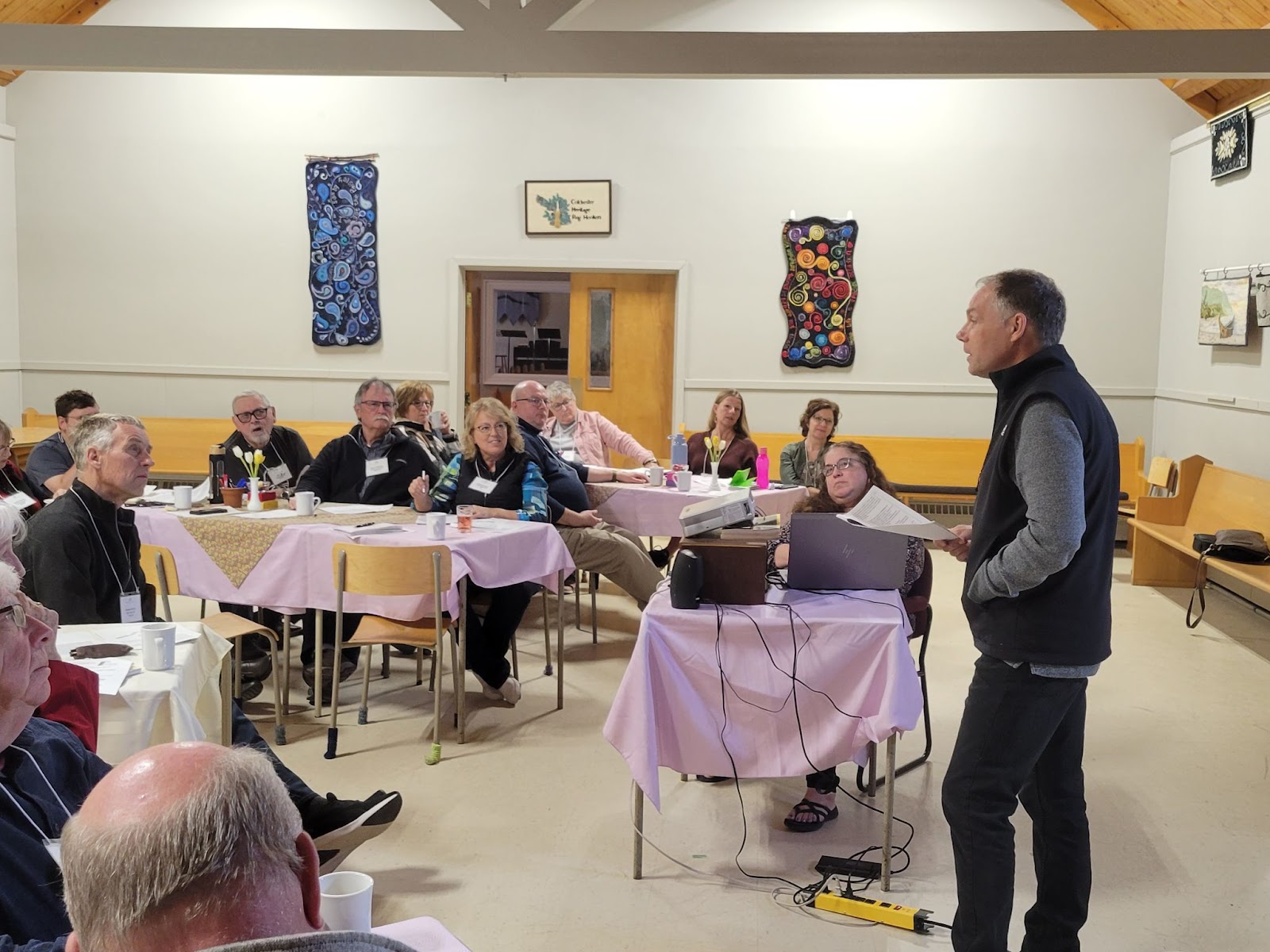If there’s one thing Christians want to do, it is to help. We know we’re called to feed the hungry, clothe the naked, and look after the sick (Matthew 25). We see people in our communities and around the world who don’t have what they need to thrive. We want to be Christ’s hands and feet, not only to provide for people’s material needs, but to point them toward the love of Jesus.
But what if the help we provide is actually causing more harm than good overall? Books such as When Helping Hurts (Corbett & Fikkert, 2009) and Toxic Charity (Lupton, 2011) were a wake-up call to many Christians to take a closer look at our traditional forms of benevolence and charity. Stories of harm both globally and locally were unsettling to many who had the best of intentions: Traditional food banks don’t actually improve food security; Christmas gift boxes can undermine local economies and a family’s dignity. In fact, the top story from Synod 2017 was the discussion about whether or not to include Operation Christmas Child (the annual gift box program of Samaritan’s Purse) on the list of accredited agencies for CRC offerings. As CRC folks listened humbly to what the research and stories from the front lines were telling us, we began to look for new ways to show mercy to our neighbours that would truly be good news to those who were living in poverty or facing injustice, rather than disempowering them.
The biggest impact these workshops have provided is a general awareness that charity and defaulting to giving/doing by the church is not lifting people up in the way we thought that it did.
“Helping Without Harming” workshops are one of the ways that Diaconal Ministries Canada has been leaning into this topic. Offered initially in partnership with World Renew Canada, these workshops help participants learn about the complexity of poverty, the different types of help that can be offered, and the importance of using asset-based approaches rather than focusing solely on deficits (needs). According to Rachel Vroege, Diaconal Ministries’ Regional Ministry Developer for western Canada, “When we talk with deacon teams and churches about benevolence and say the phrase ‘helping without hurting or harming’ there is often a lot of head nodding. The biggest impact these workshops have provided is a general awareness that charity and defaulting to giving/doing by the church is not lifting people up in the way we thought that it did. More than ever, churches are partnering with agencies in the community, reconsidering handouts, and talking about how to build mutual relationships with people seeking financial support.”
The other insight these workshops have given is that poverty and addictions don't happen in a vacuum and can’t be solved with arms-length, one-off charitable solutions. As workshop participant Jamie Wall said, “The most interesting part about the workshop was recognizing the importance of relationships. Traditionally, we’ve liked fixing problems, and poverty is seen as just another problem to fix. But we learned that poverty is more holistic than just a lack of resources; there could be systemic issues, mental health issues, relationship issues – and there’s not just one solution, because every case is different. To get to know the problem, you have to get to know the people involved! This takes a different level of engagement, and forces you to get out of your bubble.” Helping without harming means looking at systemic barriers and injustices – or at least being aware of them.
How can we change the way we view ourselves in this (feeling superior about giving vs. seeing ourselves as fellow life-travellers also in need of grace)?
More and more, deacons and churches are seeing the connection between benevolence and justice, even if they aren't clear on what the church should be doing about it. As another participant said, “I can see how forming relationships is the key to working on asset-based approaches towards solutions. However, there is such a demand for emergency relief that it has become difficult to see beyond that.” This led Diaconal Ministries to create a separate Benevolence Policy workshop that helps churches and deacon teams to really think through these questions - Who are our partners in the community? How can we build relationships? Who will we help and how? How can we change the way we view ourselves in this (feeling superior about giving vs. seeing ourselves as fellow life-travellers also in need of grace)? We’re now seeing a gradual shift in how deacons think about and approach these issues.

We can’t make lasting change if we continue to see our neighbours or neighbourhoods as deficient. Through Helping Without Harming training, we can learn to recognize the injustices facing the people we are called to reach, and find ways to help that preserve their dignity and help them flourish - helping that is truly good news.
Photo by Joel Muniz on Unsplash and photo of training provided by Diaconal Ministries Canada.




The Reformed family is a diverse family with a diverse range of opinions. Not all perspectives expressed on the blog represent the official positions of the Christian Reformed Church. Learn more about this blog, Reformed doctrines, and our diversity policy on our About page.
In order to steward ministry shares well, commenting isn’t available on Do Justice itself because we engage with comments and dialogue in other spaces. To comment on this post, please visit the Christian Reformed Centre for Public Dialogue’s Facebook page (for Canada-specific articles) or the Office of Social Justice’s Facebook page. Alternatively, please email us. We want to hear from you!
Read more about our comment policy.